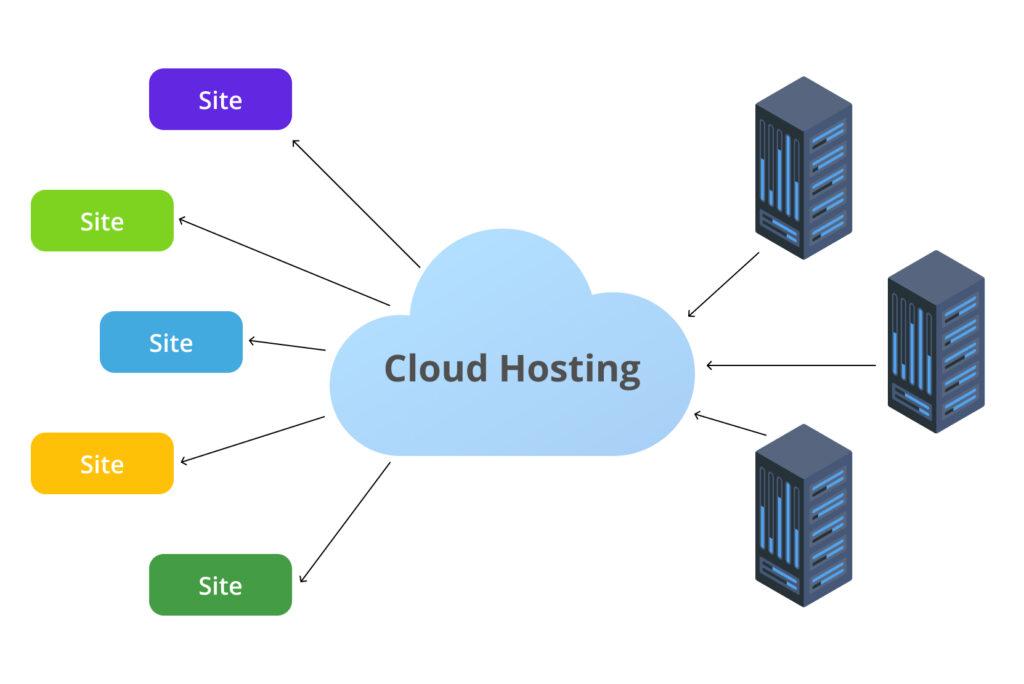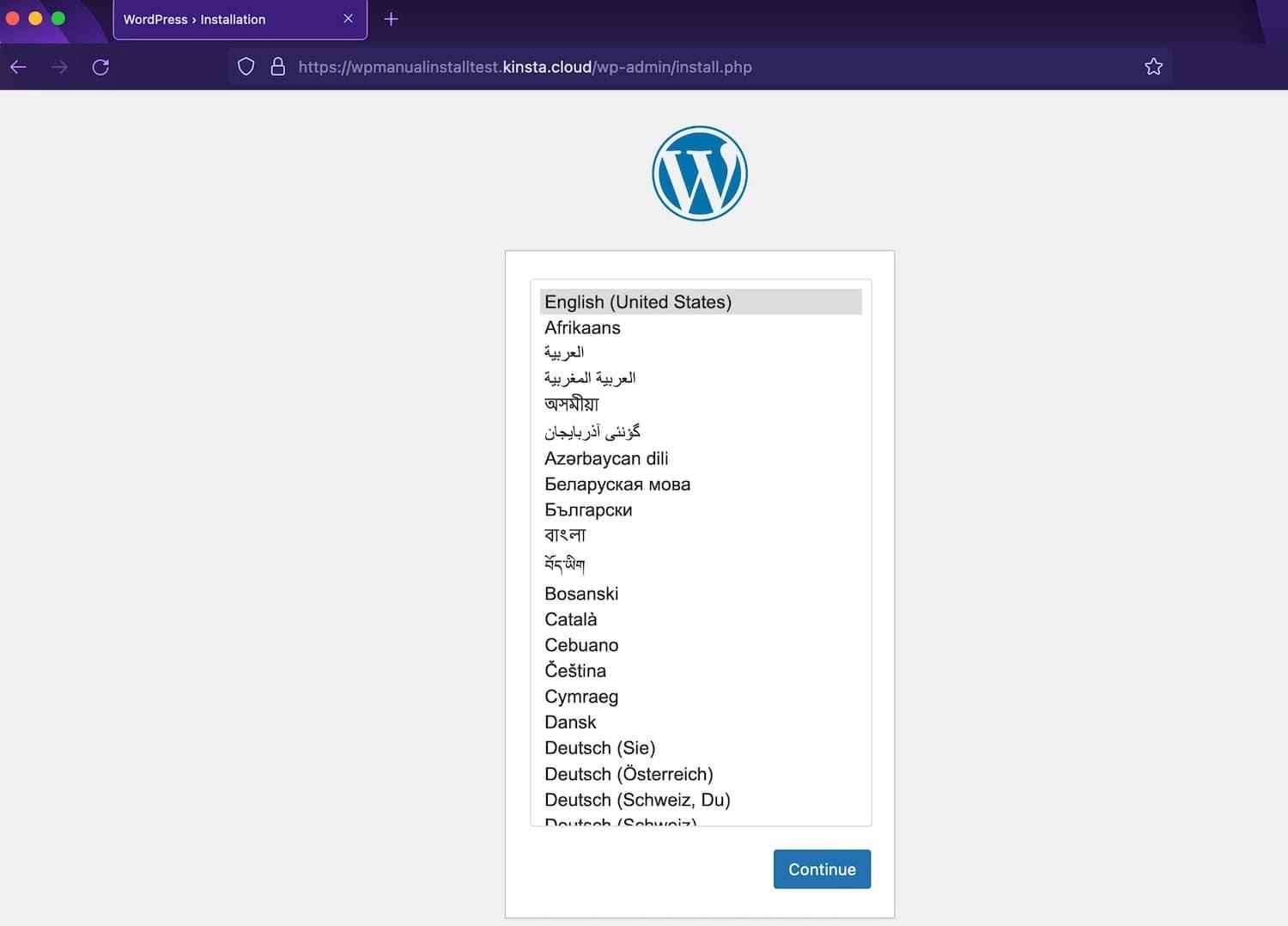Are you curious about cloud hosting and wondering if it’s the right solution for your website or business? You’re not alone! With so many technical terms flying around, it can be tough to pin down exactly what cloud hosting is and how it works.But don’t worry; we’re here to break it all down for you in simple, clear terms. In this article, we’ll explore the ins and outs of cloud hosting, weighing its pros and cons, so you can make an informed decision. Whether you’re a small business owner looking for scalability or a tech enthusiast wanting to understand the latest trends, understanding cloud hosting could be a game-changer for you. Ready to take your first step into the cloud? Let’s dive in!
Understanding the Basics of Cloud Hosting
Cloud hosting represents a important shift in how we think about web hosting and server management.At its core, cloud hosting utilizes virtual servers that pull their resources from extensive underlying networks of physical servers. This means that unlike traditional hosting, where your website is tied to a single server, cloud hosting offers flexibility, scalability, and reliability.
One of the key advantages of cloud hosting is its ability to scale resources based on demand. For businesses that experiance fluctuating traffic,this scalability ensures that your website remains accessible even during peak times. Imagine launching a marketing campaign that suddenly generates a spike in visitors; with cloud hosting, you can effortlessly increase your resources without downtime. here are a few benefits of cloud hosting:
- Cost-Effective: You pay only for what you use, eliminating waste.
- High Availability: Resources are distributed across multiple servers, reducing the risk of downtime.
- Improved Performance: Load balancing ensures that traffic is evenly distributed, enhancing speed.
Though, it’s essential to consider the potential downsides of cloud hosting. One significant concern is security. While cloud providers invest heavily in security measures, your data is still stored off-site, which can raise privacy issues. Additionally, not all cloud hosting solutions offer the same level of performance or support.here’s a quick look at some of the potential drawbacks:
- Less Control: You rely on the provider for server management.
- variable Costs: While it can be cost-effective, unexpected usage spikes can lead to increased costs.
- complexity: Setting up and managing cloud hosting can be more complex than traditional hosting.
When it comes to getting started with cloud hosting, the first step is to choose the right provider. Look for features that align with your needs, such as scalability options, customer support, and security protocols. Some popular providers include:
| Provider | Key Features | Pricing |
|---|---|---|
| AWS | Scalable storage, extensive global reach | Pay-as-you-go |
| Google Cloud | Machine learning integration, big data tools | Flexible pricing |
| Microsoft Azure | Hybrid cloud capabilities, security features | Varies by service |
once you’ve chosen a provider, familiarize yourself with your chosen platform. Most providers offer comprehensive documentation and support to help you set up your surroundings. As you delve deeper, consider how you can leverage additional features like auto-scaling and backup solutions to enhance your cloud hosting experience. Remember, the key to maximizing the benefits of cloud hosting lies in understanding its capabilities and how it can serve your specific needs.
Unpacking the Advantages of Cloud Hosting for Your Business
cloud hosting has gained immense popularity in recent years, and for good reason. By leveraging the power of distributed resources, it offers a range of benefits that traditional hosting simply cannot match. One of the most compelling advantages is scalability. As your business grows, so too can your cloud hosting capabilities. You can easily adjust your resources—like storage and bandwidth—without the need for extensive downtime or complex migrations.
Another significant advantage is cost-effectiveness. With cloud hosting, you typically only pay for the resources you use. This pay-as-you-go model eliminates the need for hefty upfront investments in hardware and maintenance. For many businesses, this translates to substantial savings, allowing funds to be redirected toward other critical areas such as marketing or product advancement.
Security is also a top priority for any business, and cloud hosting provides robust measures to safeguard your data. Most cloud service providers implement advanced security protocols, such as encryption and frequent backups, ensuring that your data is not just accessible but protected against potential threats. This level of security is often beyond what many small to medium-sized businesses can achieve on their own.
Additionally, cloud hosting enables enhanced collaboration. With data stored in the cloud, teams can access and share facts from anywhere, using any device. This flexibility not only improves productivity but also supports remote work, which has become increasingly important in today’s business landscape. Employees can seamlessly collaborate on projects, irrespective of their physical location, leading to faster decision-making and innovation.
| Advantage | Description |
|---|---|
| Scalability | Easily adjust resources to match business growth. |
| cost-Effectiveness | Pay for only what you use, reducing upfront costs. |
| Security | advanced protection, including encryption and backups. |
| Collaboration | Access data from anywhere,improving team productivity. |
the advantages of cloud hosting make it a compelling choice for businesses looking to enhance their operational efficiency and security. By adopting this model, companies can not only save costs but also empower their teams to work more effectively. The future of hosting is in the cloud, and the time to embrace it is now.

The Drawbacks You Should Consider Before Choosing Cloud Hosting
While cloud hosting offers numerous advantages, it’s essential to consider the potential drawbacks that could impact your decision. Understanding thes challenges can definitely help you make an informed choice that aligns with your business needs.
One of the primary concerns with cloud hosting is security and data privacy. Since your data is stored on remote servers, it may be susceptible to breaches or unauthorized access. although cloud providers often implement robust security measures,the obligation for protecting sensitive data ultimately remains with you. It’s crucial to assess the provider’s security protocols and ensure they comply with relevant regulations.
Another consideration is cost variability. While cloud hosting can start as an economical option, costs can escalate quickly with increased usage. Many providers offer pay-as-you-go pricing models, which can be advantageous for scaling; though, unexpected increases in traffic or resource consumption can lead to a surprise bill. Understanding the pricing structure and closely monitoring your usage is vital to avoid budget overruns.
The potential for downtime and service outages is also a significant factor. Although cloud providers strive for high uptime percentages, no service can guarantee 100% availability. Should an outage occur, it could disrupt your operations and affect customer satisfaction. Researching the provider’s track record for reliability and their disaster recovery plans can help mitigate this risk.
Additionally, vendor lock-in is a concern when using cloud hosting services. If you become too reliant on a specific cloud provider’s tools and architecture, migrating to another platform can become challenging and costly. It’s important to consider how easily you could transfer your data and applications should you need to switch providers in the future.
performance variability can also be a drawback. Since cloud resources are shared among multiple users, performance can fluctuate based on overall demand. If you require consistent and high performance for your applications, it might potentially be beneficial to explore dedicated hosting solutions or hybrid models that combine the best of both worlds.
How Cloud Hosting Compares to Traditional Hosting Solutions
When deciding between cloud hosting and traditional hosting solutions, it’s essential to understand the fundamental differences that can impact your business operations. Cloud hosting leverages a network of virtual servers to store and manage your data, while traditional hosting typically relies on a single physical server. This distinction leads to several advantages and disadvantages that can significantly affect performance, scalability, and cost.
Scalability is one of the most notable benefits of cloud hosting. Because resources can be allocated dynamically based on demand, businesses can easily scale up or down without the need for significant hardware investments. In contrast, traditional hosting often requires a fixed amount of resources, which can lead to over-provisioning or under-provisioning, resulting in wasted costs or performance issues during peak usage times.
Another key advantage of cloud hosting is reliability. With traditional hosting, if the physical server goes down, your website goes down with it.Cloud hosting, conversely, operates on a network of servers, meaning that if one server fails, your data can be rerouted to another, ensuring maximum uptime. this redundancy is a game changer for businesses that can’t afford downtime.
Cost management is another important factor to consider. Cloud hosting typically operates on a pay-as-you-go model, allowing businesses to pay only for what they use. This can be particularly advantageous for startups and small businesses with limited budgets. Traditional hosting may require substantial upfront investments in hardware and ongoing maintenance costs, which can strain financial resources.
| Feature | Cloud Hosting | Traditional Hosting |
|---|---|---|
| Scalability | Dynamic allocation of resources | Fixed resources |
| Reliability | High availability with multiple servers | Single point of failure |
| Cost Structure | Pay-as-you-go | upfront hardware costs |
Though, it’s critically important to note that cloud hosting may introduce concerns regarding data security and privacy. While reputable cloud hosting providers implement robust security measures, some businesses may still prefer the control that comes with traditional hosting, where they manage their own servers and data. Ultimately, the choice between cloud and traditional hosting will depend on your specific needs, budget, and growth plans.

Evaluating Your Needs: Is cloud Hosting Right for You?
Deciding whether cloud hosting is the right choice for your business involves a careful assessment of your specific needs and future goals. It’s essential to consider various factors that could influence your decision. One of the primary aspects to evaluate is the scale of your operations. If you’re a growing business expecting fluctuating traffic, cloud hosting can offer impressive scalability and flexibility.
Another critical factor is your budget. Cloud hosting typically operates on a pay-as-you-go model, which can be advantageous for startups or small businesses with tighter budgets. though, understanding the pricing structure is vital, as costs can quickly add up if your resource usage is not carefully monitored. Here are a few points to help you gauge your budget:
- Initial Setup Costs: Consider any upfront fees for migration or configuration.
- Ongoing Costs: Factor in monthly or annual fees based on usage.
- Potential Extras: Be aware of additional fees for data transfers or backup solutions.
Security is another crucial consideration. Cloud providers frequently enough implement advanced security measures, including encryption and regular backups. If your business handles sensitive information, you should assess how well potential providers comply with industry standards and regulations. Ask yourself:
- What data protection measures do they have in place?
- how do they handle security breaches?
- Is their infrastructure compliant with regulations relevant to my business?
Lastly, consider the technical expertise of your team. Cloud hosting can be more complex than traditional hosting solutions, requiring a certain level of technical know-how. If your team lacks cloud computing experience, it may be beneficial to look for a provider that offers customer support and managed services. This will help ease the transition and ensure your operations run smoothly.
| Consideration | cloud Hosting | Traditional Hosting |
|---|---|---|
| Scalability | High,based on demand | Limited,fixed resources |
| Cost Structure | Pay-as-you-go | Fixed monthly fee |
| Management Complexity | Requires technical expertise | Generally simpler |
| Security | Advanced measures available | Basic security |

Steps to Get Started with Cloud Hosting: A Beginner’s Guide
Embarking on your cloud hosting journey can seem daunting, but breaking it down into manageable steps can make the process smooth and enjoyable. Here’s how you can get started:
- Define Your Needs: Before diving into the world of cloud hosting, assess your requirements.Consider the type of website or submission you’re building, its expected traffic, and any specific features you may need, such as scalability or security options.
- research Providers: Not all cloud hosting services are created equal. Take your time to research different providers. Look for reviews, pricing structures, and the variety of services they offer. Some popular options include AWS, Google cloud, and DigitalOcean.
- Compare Pricing Plans: Cloud hosting can often come with various pricing models. Pay attention to factors like monthly fees, pay-as-you-go options, and any additional costs for storage or bandwidth. Choose a plan that aligns with your budget while still meeting your needs.
Once you’ve narrowed down your options, it’s time to take action:
- Set Up an Account: After selecting a provider, create your account. This usually involves providing basic personal information and selecting a payment method. Make sure to review any introductory offers that might be available.
- choose Your Resources: Most cloud hosting platforms allow you to customize your server resources, including CPU, RAM, and storage. based on your earlier assessment, configure your server to suit your requirements. Don’t be afraid to start small; you can scale as your needs grow.
- Deploy Your application: With your cloud server ready, you can now deploy your application or website. Many providers offer one-click installation for popular CMS platforms like WordPress or Joomla, simplifying this process significantly.
To help visualize your options, consider the following table summarizing some top cloud hosting providers:
| Provider | Starting Price | Key Features |
|---|---|---|
| AWS | $3.50/month | Scalable, pay-as-you-go pricing, wide range of services |
| Google Cloud | $10/month | Easy integration with Google services, robust analytics |
| DigitalOcean | $5/month | User-friendly interface, great for developers |
| Microsoft Azure | $15/month | Extensive app services, excellent support |
keep learning and optimizing. Monitor your site’s performance and make adjustments as necessary. Most cloud hosting providers offer analytics tools that can help you understand your traffic patterns and resource usage, enabling you to make informed decisions as you grow.

top Providers to Consider for Your Cloud Hosting Needs
When it comes to selecting the right cloud hosting provider, the choices can be overwhelming. However, a few standout options consistently receive praise for their performance, features, and customer support. Below are some top providers that you should consider as you embark on your cloud hosting journey:
- AWS (Amazon Web Services): Renowned for its scalability and robust infrastructure, AWS offers a comprehensive suite of services that cater to businesses of all sizes. With a pay-as-you-go pricing model, it allows flexibility and cost-effectiveness.
- Google Cloud Platform: Known for its exceptional speed and performance, Google Cloud provides advanced data analytics and machine learning capabilities. It’s an excellent choice for organizations looking to leverage big data.
- Microsoft Azure: Featuring seamless integration with Microsoft products, azure is ideal for businesses heavily invested in the Microsoft ecosystem. Its hybrid cloud solutions offer versatility that many organizations find appealing.
- DigitalOcean: Perfect for developers and startups, DigitalOcean offers simplicity and great value for money. Its straightforward pricing and user-friendly interface make it easy to get started.
- IBM Cloud: With a strong focus on enterprise solutions and security, IBM Cloud is a great choice for large organizations needing robust infrastructure and compliance capabilities.
While each provider has its strengths, consider your specific needs before making a decision. Here’s a quick comparison to help you weigh your options:
| Provider | Best For | Key Features |
|---|---|---|
| AWS | Scalability | Extensive services,global reach |
| Google Cloud | Data analytics | Speed,machine learning tools |
| Microsoft Azure | Microsoft users | Hybrid solutions,enterprise support |
| DigitalOcean | Startups | Easy setup,affordable pricing |
| IBM Cloud | Enterprise | Security,compliance |
As you evaluate these providers,consider not just the features and pricing,but also the level of customer support and community resources available. A provider with excellent customer service and robust documentation can make a significant difference in your cloud hosting experience.
Best Practices for Maximizing Your Cloud Hosting Experience
To truly capitalize on the benefits of cloud hosting, it’s essential to implement best practices that not only enhance performance but also ensure security and ease of management.One of the most effective strategies is to choose the right cloud service provider. Not all cloud hosting services are created equal; each comes with its unique features, pricing models, and support systems. Take the time to evaluate various options based on your specific needs, such as scalability, uptime guarantees, and user reviews.
Another key practice is to regularly monitor your resource usage. Cloud hosting offers dynamic scalability, meaning you can adjust your resources based on demand. Utilize the analytics tools provided by your cloud service to keep track of your resource consumption, which allows you to optimize your usage and avoid needless costs. It’s also vital to set alerts for when you approach your resource limits so you can take proactive measures.
Security should never be an afterthought. Implementing multi-layered security protocols is critical for protecting your data in the cloud. This includes using strong passwords, enabling two-factor authentication, and regularly updating your software. Furthermore, consider utilizing encryption for sensitive data, both at rest and in transit, to add an extra layer of security.
Don’t forget about backups. Regularly backing up your data ensures that you can quickly recover from any unexpected incidents. Take advantage of automated backup solutions provided by your cloud service, and make sure your backup strategy includes off-site copies for added security. A well-planned backup strategy can save you from downtime and potential data loss.
| Best Practices | Description |
|---|---|
| choose the Right Provider | Evaluate providers based on features, performance, and reviews. |
| Monitor Resource Usage | Use analytics tools to track and optimize your resource consumption. |
| Implement Security Protocols | Utilize strong passwords, two-factor authentication, and encryption. |
| Regular Backups | Automate backups and ensure off-site copies for recovery. |
Lastly, don’t underestimate the power of community and support. Engage with forums, user groups, and customer support from your cloud provider. These platforms can provide valuable insights, tips, and troubleshooting assistance that can enhance your overall experience. Leveraging community knowledge can make the difference between a good and exceptional cloud hosting experience.
Troubleshooting Common Issues with Cloud Hosting
When it comes to cloud hosting, users may encounter several common issues that can disrupt their experience. Understanding these challenges and knowing how to troubleshoot them can save you time and frustration. Here are some of the most frequent problems and their solutions:
- Slow Performance: If your cloud-hosted website is loading slowly, consider checking your server’s resources.Upgrading your plan or optimizing your application can significantly enhance performance.
- Downtime: Cloud hosting offers high availability, but outages can still occur. Monitor service status through your provider’s dashboard and ensure you have a reliable backup strategy in place.
- Security Concerns: Data breaches can happen, even in the cloud. Regularly update your passwords, enable two-factor authentication, and consider using a VPN for added security.
- Billing Issues: Unexpected charges can be a source of confusion. Always review your pricing structure and monitor your usage to avoid surprises.
Additionally, it’s crucial to keep your applications and systems up to date. Many performance-related issues can stem from outdated software. Implementing a regular update schedule can mitigate potential risks and maintain optimal functionality.
Here’s a quick reference table to summarize the troubleshooting tips:
| Issue | Recommended Solution |
|---|---|
| Slow Performance | Upgrade resources or optimize applications |
| Downtime | Monitor service status; have a backup plan |
| Security Concerns | Use strong passwords and enable 2FA |
| Billing Issues | Review pricing and monitor usage |
Lastly, if you find yourself stuck, don’t hesitate to reach out to your cloud hosting provider’s support team. They are equipped to assist you with specific issues related to your account and can provide guidance tailored to your needs. By taking proactive steps and utilizing available resources, you can ensure a smoother cloud hosting experience.
Future Trends in Cloud Hosting You Should Keep an Eye On
The cloud hosting landscape is rapidly evolving, and staying ahead of the curve is essential for businesses looking to leverage technology effectively. One of the key trends gaining traction is multi-cloud strategies. Organizations are increasingly adopting multiple cloud services from various providers to avoid vendor lock-in and enhance resilience. This approach not only mitigates risks but also allows companies to tailor their infrastructure to specific needs, optimizing costs and performance.
Another trend worth noting is the rise of serverless computing. This model allows developers to focus on writing code without worrying about the underlying infrastructure. By automatically scaling applications and charging only for actual usage, serverless solutions can significantly reduce costs and improve efficiency. As more businesses prioritize agility, the adoption of serverless architectures is expected to soar.
Artificial Intelligence (AI) and Machine Learning (ML) integration into cloud services is also on the rise. Providers are incorporating AI and ML capabilities to enhance security, optimize resource management, and improve customer service. This integration can lead to smarter analytics, automated systems, and more personalized user experiences. As these technologies continue to mature, expect them to become core components of cloud hosting services.
| Trend | Description |
|---|---|
| Multi-Cloud Strategies | Utilizing services from multiple cloud providers to enhance flexibility and reduce risks. |
| Serverless Computing | Focusing on code while the cloud provider manages the infrastructure, promoting efficiency. |
| AI & ML Integration | Leveraging artificial intelligence for improved security, analytics, and customer experiences. |
As cloud technology matures, edge computing is becoming increasingly relevant.By processing data closer to the source, edge computing minimizes latency and maximizes speed, which is vital for iot applications and real-time analytics. This trend aligns with the growing demand for faster data processing and the need to handle the vast amounts of data generated by connected devices.
Lastly, enhanced security measures are taking center stage. With the rise in cyber threats, cloud services are investing in advanced security protocols, including zero-trust models and automated threat detection systems. Businesses will need to prioritize security in their cloud hosting choices,ensuring that providers are equipped to safeguard sensitive data against evolving threats.
Frequently Asked Questions (FAQ)
Q: What exactly is cloud hosting?
A: Great question! Cloud hosting is a type of web hosting that uses multiple servers to store your data and manage your website. Unlike traditional hosting, which relies on a single server, cloud hosting spreads your resources across several servers in a network. This means if one server goes down, your website stays up and running because it can draw resources from other servers.
Q: What are the main advantages of cloud hosting?
A: There are several fantastic advantages to cloud hosting! First, scalability is a major perk.As your website grows, you can easily increase your resources without needing to migrate to a new server.second, it offers better reliability and uptime, since your site isn’t dependent on just one server. Lastly, many cloud hosting services provide enhanced security features, which is crucial for protecting your data.
Q: Are there any downsides to cloud hosting?
A: Absolutely, it’s important to consider the cons as well. One downside is that costs can add up quickly, especially if you’re not careful about monitoring your usage. Additionally, some users may find cloud hosting a bit complex to set up and manage, especially if they’re used to traditional hosting. Lastly, since your data is stored off-site, you might have concerns about privacy and control.
Q: How do I know if cloud hosting is right for me?
A: It really depends on your needs! If you have a growing website that experiences fluctuating traffic, cloud hosting could be a perfect fit. It’s also great for businesses that prioritize reliability and uptime. On the other hand, if you run a small personal blog with low traffic, traditional hosting might be more cost-effective.
Q: What’s the first step to getting started with cloud hosting?
A: The first step is to research and choose a reputable cloud hosting provider. Look for features that matter to you, such as scalability, customer support, and pricing. Once you select a provider, you’ll typically sign up, choose your plan, and set up your account. Many providers offer easy-to-follow tutorials to get you started!
Q: Can I migrate my existing website to cloud hosting?
A: Yes! Most cloud hosting providers offer migration services or tools to help you move your existing website. It’s a good idea to check if the provider you choose has a straightforward migration process, as this can save you a lot of headaches.
Q: Is cloud hosting secure?
A: Generally, yes! Most cloud hosting providers invest in robust security measures such as firewalls, encryption, and regular backups.Though, it’s crucial to do your part, too. Use strong passwords, enable two-factor authentication, and keep your software updated to enhance your website’s security even further.
Q: what’s the bottom line? Should I consider cloud hosting?
A: If you’re looking for flexibility,reliability,and the ability to scale with ease,cloud hosting is definitely worth considering. With so many providers offering various features, you’re likely to find a solution that fits both your needs and your budget.Take the plunge, and you might be surprised at how much smoother your online presence can become!
Key Takeaways
As we wrap up our journey through the ins and outs of cloud hosting, it’s clear that this innovative solution has something to offer everyone—from small businesses looking to scale to tech-savvy individuals wanting more control over their online presence. The pros of cloud hosting, like flexibility, scalability, and cost-effectiveness, can significantly enhance your digital strategy, while the cons remind us to stay informed and choose wisely.
So, if you’re considering making the switch, take that leap! Start by assessing your needs, exploring different providers, and weighing your options carefully. Remember, the cloud isn’t just a storage solution; it’s a powerful platform that can elevate your online experience to new heights.
Why not dive in and see how cloud hosting can redefine your digital landscape? With the right approach,you’ll not only find a solution that fits your needs but also unlock new possibilities for growth and innovation. Happy hosting!



